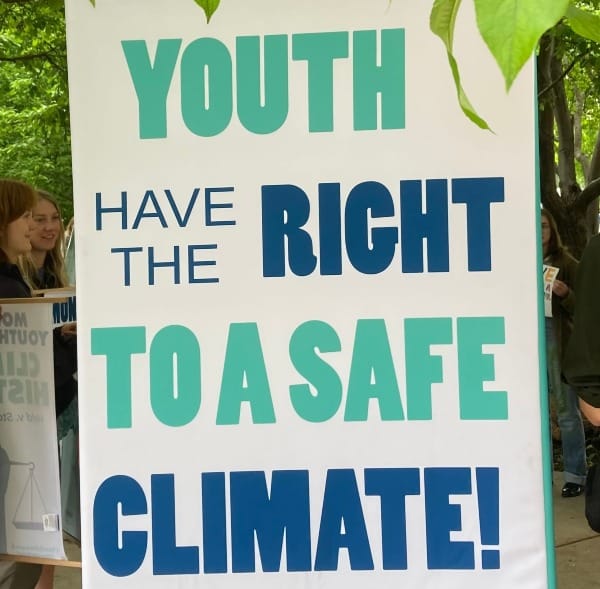Court Rejects Oil Companies' Appeal, Rules California Climate Cases Belong In State Court

California communities suing major oil and gas companies over localized climate change impacts moved one step closer to holding these companies accountable in court. On Tuesday, May 26, a three-judge panel on the Ninth Circuit Court of Appeals issued two decisions both favoring the municipal plaintiffs seeking to make fossil fuel companies pay for multi-billion dollar costs associated with climate impacts and adaptation.
The decisions concern jurisdiction, specifically whether the cases belong in state or federal court. This question has so far been at the center of climate liability lawsuits filed by California communities and by cities, counties and states across the country. Fossil fuel defendants like ExxonMobil, Chevron, and Shell want the cases in federal court where they are more likely to succeed in getting them dismissed, as federal courts have already tossed several of these cases and climate cases from a decade ago. The local governments bringing the lawsuits are fighting to keep them in state courts under state nuisance law, which is particularly strong in California and has been used in similar cases against manufacturers of harmful products like opioids and lead paint.
The Ninth Circuit rulings in the California climate cases, finding that they should proceed in state court, resolve two conflicting decisions by California District Judges William Alsup and Vince Chhabria. Alsup ruled in late-February 2018 to keep cases brought by Oakland and San Francisco in federal court, and just a few months later he dismissed the cases in an initial win for Big Oil. Chhabria ruled in March 2018 to send another set of cases, filed by the counties of San Mateo, Marin, and Santa Cruz and the cities of Imperial Beach, Richmond, and Santa Cruz, back to state court. The Ninth Circuit took up both rulings on appeal. Hearings were held earlier this year in Pasadena before Judges Sandra Ikuta, Morgan Christen and Kenneth Lee.
The panel reversed Alsup’s ruling in the San Francisco/Oakland case. According to the panel’s decision, the state law public nuisance claim did not arise under federal law, did not raise a substantial federal question, and was not completely preempted by the Clean Air Act. San Francisco and Oakland brought a narrow case, filed in 2017, with a single nuisance claim against the five largest oil companies including BP, Chevron, ConocoPhillips, Exxon, and Shell. Although Alsup dismissed the case, the Ninth Circuit panel’s decision revives the case and remands it back to Alsup in the district court to “determine if there was an alternative basis for jurisdiction.”
“The court thoroughly rejected the fossil fuel companies’ argument that our cases somehow magically belong in federal court despite the fact that they were filed in state court raising only state law claims. We look forward to further proceedings with Judge Alsup and then getting these cases back to state court where they belong,” San Francisco City Attorney Dennis Herrera and Oakland City Attorney Barbara J. Parker said in a joint statement.
Additionally, the Ninth Circuit panel in a separate opinion upheld Chhabria’s ruling to send the San Mateo cases back to state court. The panel rejected all of the oil companies’ arguments, including that the entire remand order was reviewable and that the companies had historically acted under the direction of federal officers. The “federal officer” claim was the only grounds for review that the court accepted, and it decided the companies did not “carry their burden of establishing the criteria for federal officer removal.” The San Mateo cases, which include claims of nuisance, failure to warn, design defect, negligent failure to warn, and trespass, are now allowed to proceed in state court.
“We look forward to proceeding in state court, where the Californians we represent will have a chance to present the facts about what the defendants knew about the climate change-related dangers their fossil fuel products pose, how the defendants both deceived and didn’t warn us about those dangers, and why those companies should be held accountable for the costs of surviving climate change,” the Counties of San Mateo, Marin and Santa Cruz, and the cities of Imperial Beach, Richmond and Santa Cruz, said in a joint statement.


